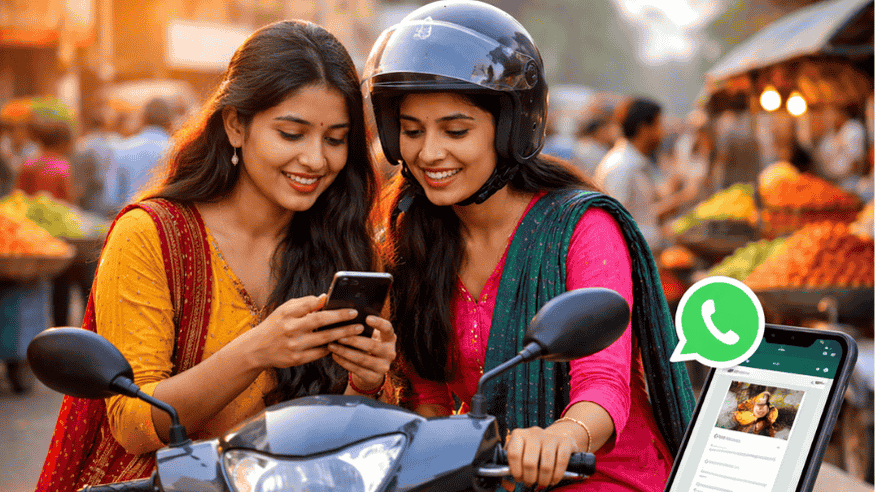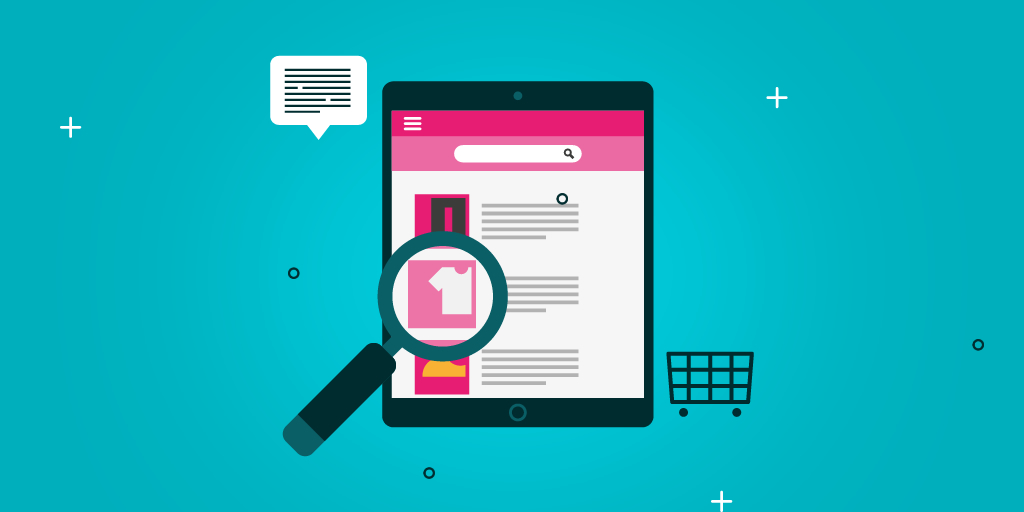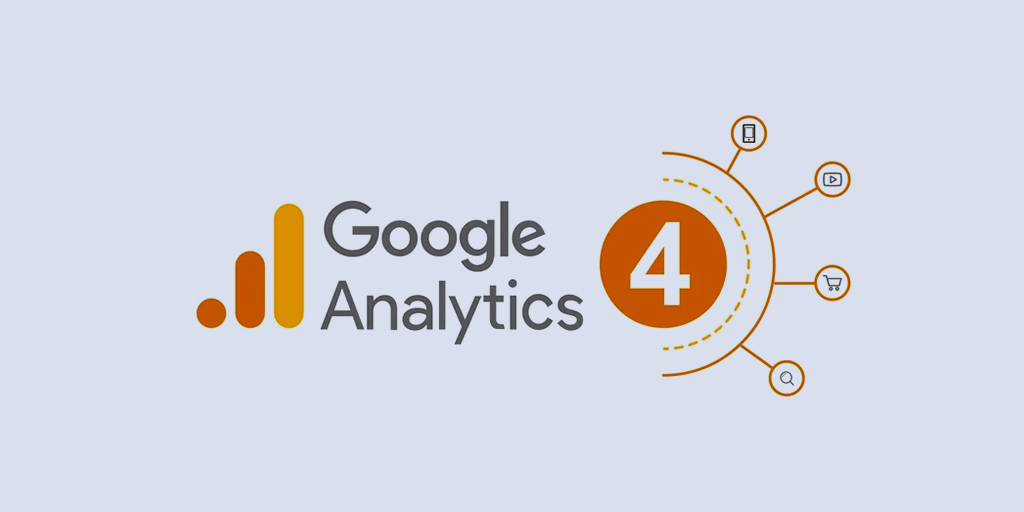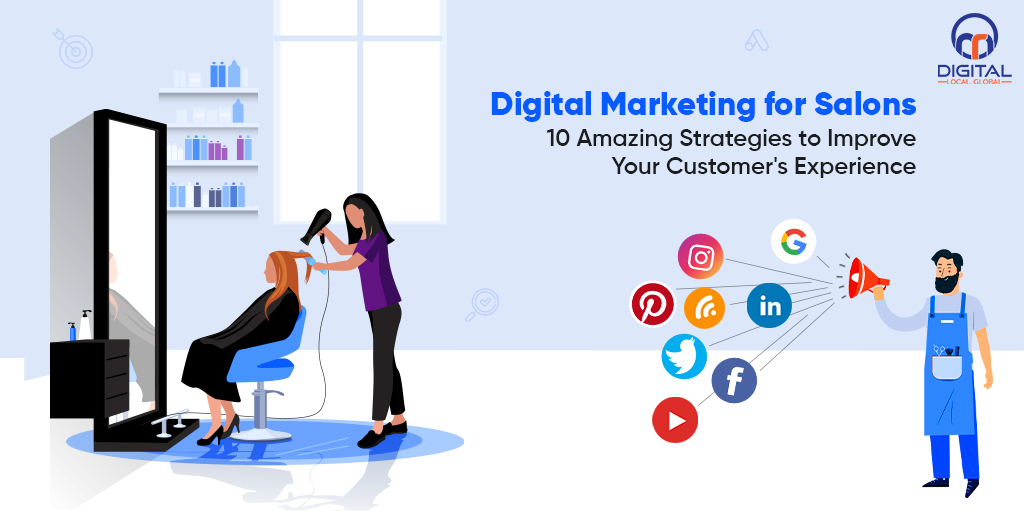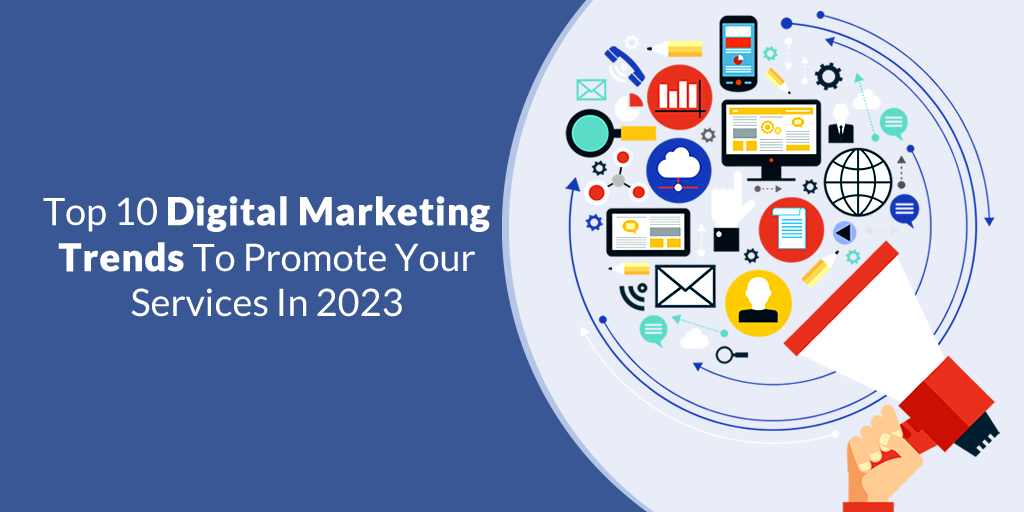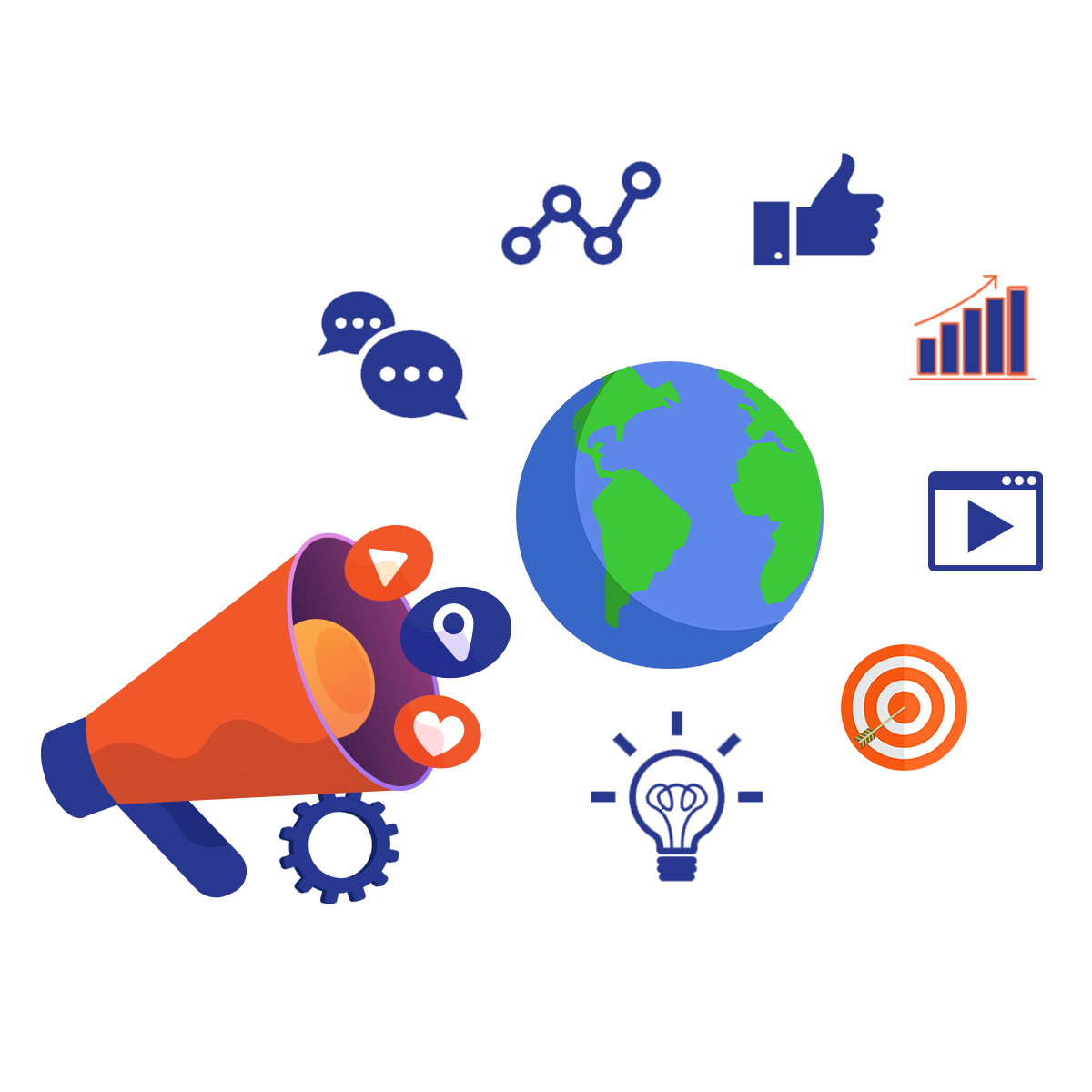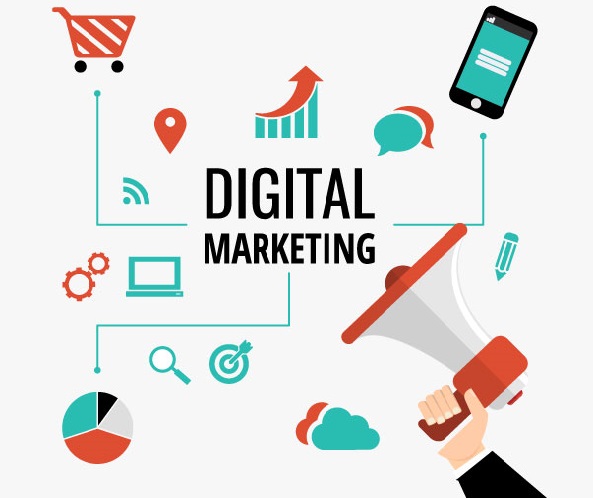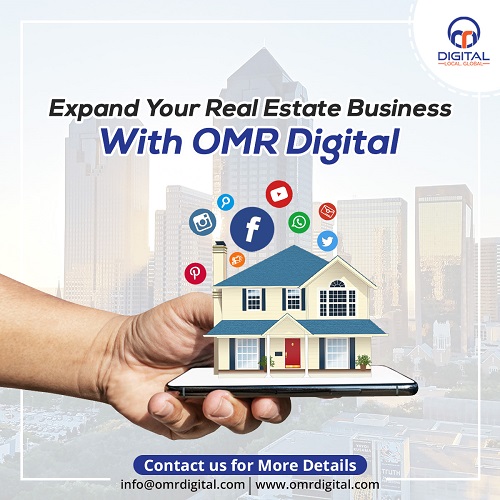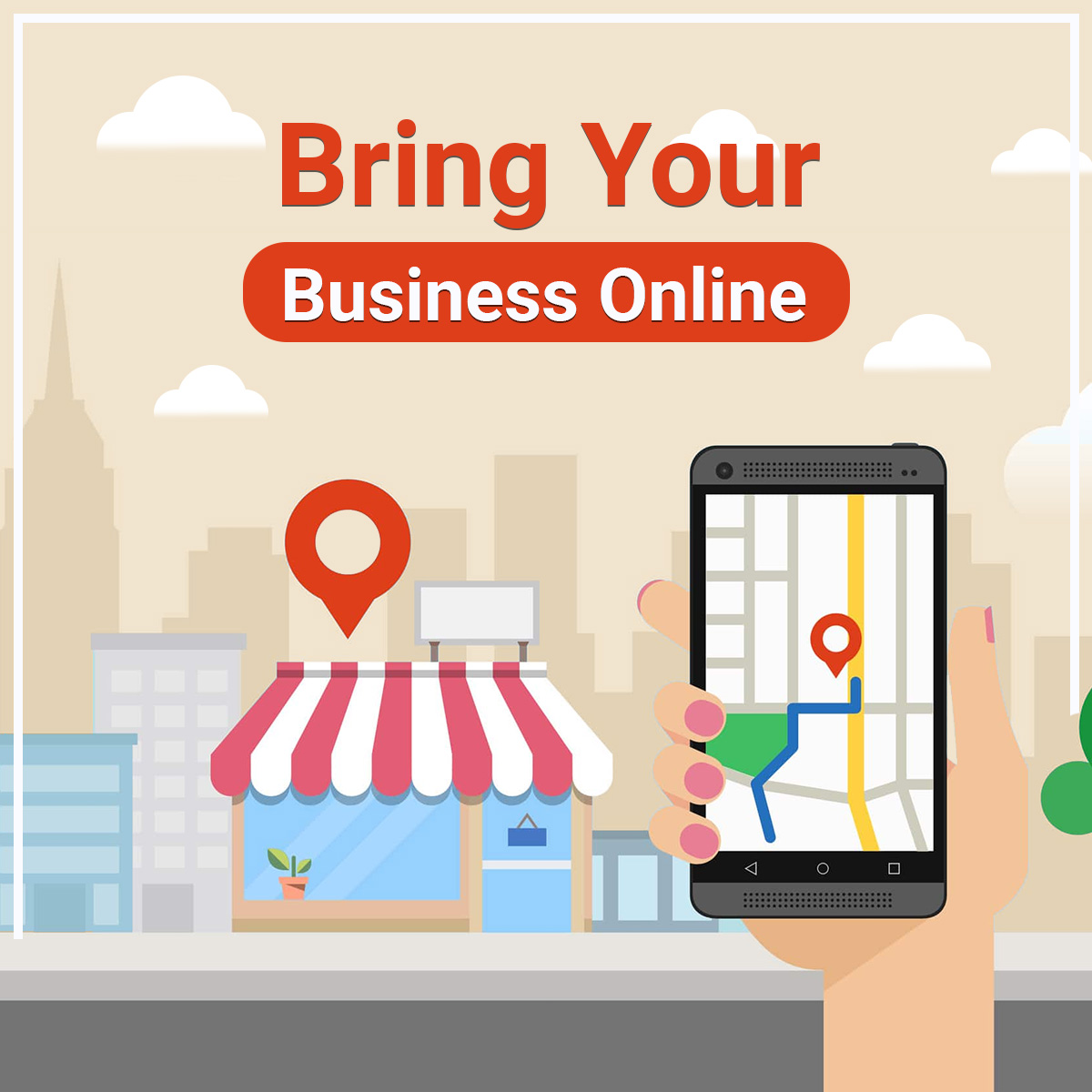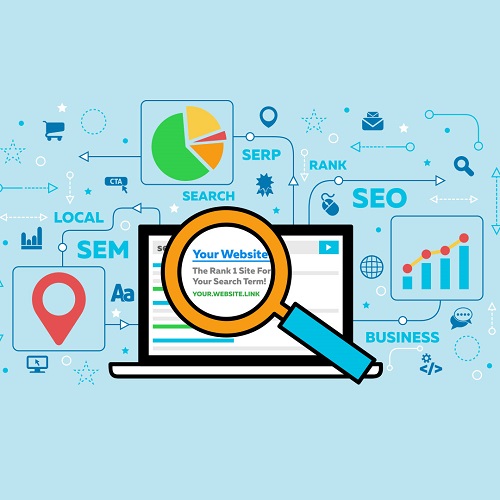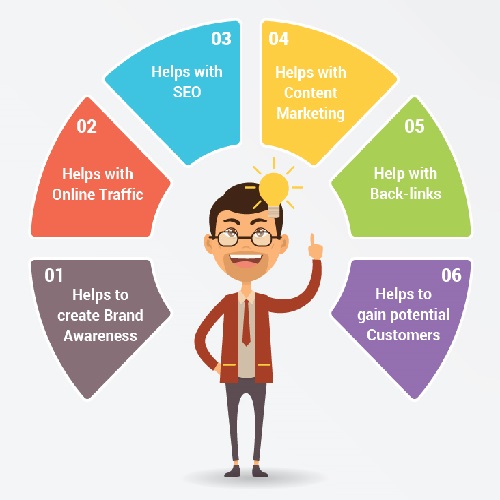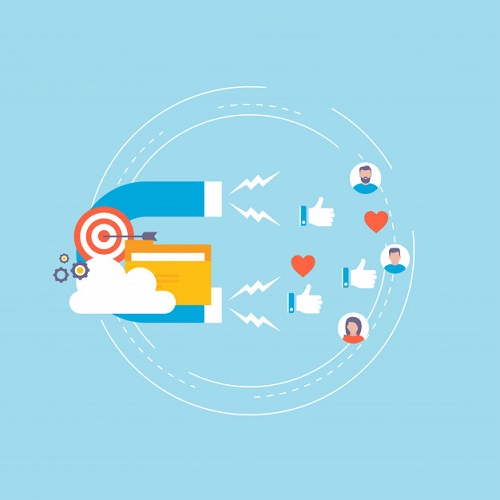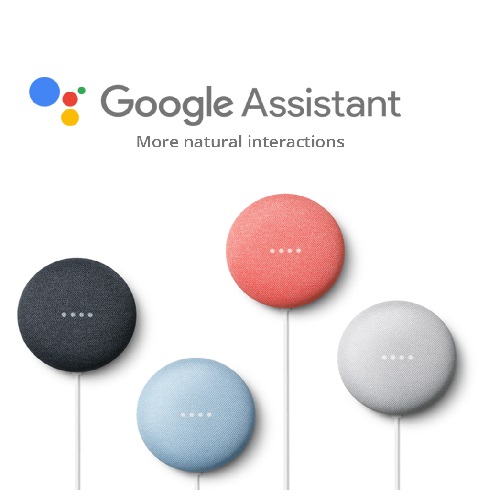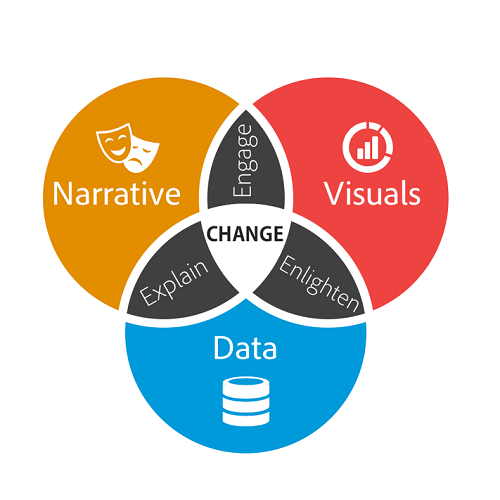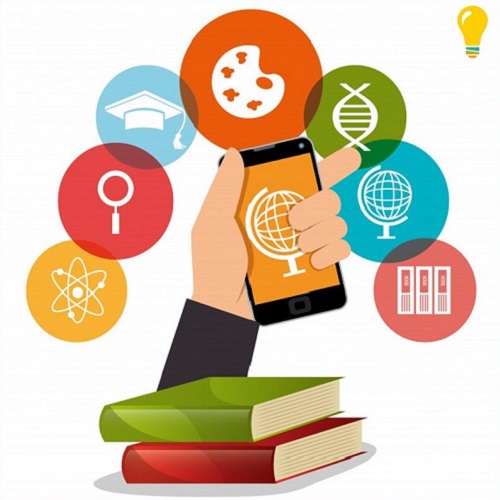Contact Us
Related Posts
Category

Digital marketing, internet marketing, and online advertising.
All these terms are being used interchangeably in today’s dynamic marketing landscape. Although they may sound a lot similar; but actually they are not!
Most businesses often get confused between digital marketing vs. online advertising. And without a nuanced understanding of both these terms, businesses are prone to making uninformed decisions that might affect their marketing efforts.
It is important for every business owner to know the intricacies of both these aspects and embrace their distinctions to craft effective strategies.
To end this online advertising vs. digital marketing confusion forever, we have created this blog that will help you learn what these two terms are, how they are different from each other, and which one you should choose.
What is Digital Marketing?
Digital marketing, also known as online marketing, refers to the practice of leveraging various digital channels to market a brand and its products or services. Digital marketing is an umbrella term that encompasses various digital strategies and tactics to promote a brand, engage with audiences, and drive conversions.
Businesses these days leverage digital marketing services to promote their brands on digital platforms like search engines, social media, email, and other websites. These platforms help businesses to connect with prospective customers and generate sales for faster business growth.
Key Components of Digital Marketing
Digital marketing is a broad spectrum that encompasses different components or strategies. Each of these strategies has its own unique strengths and outcomes. The best digital marketing agency in India uses a strategic mix of all these components to deliver the most measurable outcomes.
Some major components of digital marketing are as follows:
Search Engine Optimization (SEO)
SEO refers to the practice of optimizing a website’s content, structure, and backlinks to rank higher on search engines. SEO services enhance organic traffic and improve brand visibility. It includes on-page, off-page, and technical SEO.
Content Marketing
Content marketing means creating valuable and relevant content to attract and retain audiences. This includes blogs, articles, videos, infographics, podcasts, and eBooks. Content marketing helps to establish thought leadership and gain audience trust.
Social Media Marketing (SMM)
Social media marketing is the practice of leveraging platforms like Facebook, Instagram, and Twitter to engage with audiences. The best digital marketing agency in India uses social media analytics to refine strategies and improve engagement.
Email Marketing
Email marketing involves sending targeted emails to nurture leads and retain customers. Digital marketing services use automation tools to streamline email marketing campaigns and enhance personalization in emails.
Video Marketing
Video marketing is part of content marketing that includes creating and sharing video content to engage audiences and convey messages effectively. Businesses leverage video marketing services to boost engagement, brand awareness, and conversions.
Advantages of Digital Marketing
Targeted audience: It allows businesses to target specific demographics, interests, and behaviors, increasing the chances of reaching ideal customers.
Increased reach: Digital marketing enables businesses to reach a large audience across various platforms and devices, increasing their sales and revenue.
Cost-effective: Compared to traditional marketing methods, digital marketing services are often more cost-effective, especially for smaller businesses.
Measurable results: With digital marketing, businesses track and analyze their campaigns’ performance in real time, making it easier to make data-driven decisions.
What is Online Advertising?
After digital marketing, online advertising is the other aspect of our digital marketing vs online advertising debate that deserves attention. Online advertising is a subset of digital marketing that focuses specifically on paid promotions and advertisements to drive traffic, leads, and conversions.
Online advertising involves running paid ads across different digital platforms such as search engines and social media to reach targeted audiences quickly and efficiently. Unlike digital marketing strategies, online advertising requires a high budget and better resources to run paid campaigns.
Key Components of Online Advertising
Similar to digital marketing, online advertising also has different components or strategies. However, these components differ in multiple ways from each other. Most importantly, all these strategies are meant to deliver unique results but require separate investments and resources.
Let’s have a look at some of the key components of online advertising:
Pay-Per-Click Advertising (PPC)
Pay-per-click or PPC is the most common form of online advertising where advertisers pay a fee each time their ad is clicked. Google Ads and Microsoft Ads are popular platforms for PPC advertising used by digital marketing services.
Display Advertising
Another form of online advertising is display ads. It uses visual banners and images to promote brands that appear on websites, apps, and social media platforms. Display ads can be retargeted to engage users who previously visited a website.
Social Media Advertising
Undoubtedly the most popular form of online advertising is social media advertising. It involves running paid campaigns on social media platforms like Facebook, Instagram, LinkedIn, Twitter, and YouTube.
Retargeting (Remarketing)
Retargeting or remarketing is a form of online advertising that is used to re-engage with previous audiences rather than attract new ones. A digital marketing agency can help businesses to create effective retargeting ads.
Influencer and Sponsored Ads
This form of online advertising involves paying influencers to promote a brand’s products or services. This form works well for building brand awareness and credibility. It can be done through direct sponsorships or influencer marketplaces.
Advantages of Online Advertising
Immediate Results: Online advertising delivers quick visibility and results, making it ideal for businesses that need instant engagement and sales.
Measurable Performance: Digital ads come with analytics and tracking tools that provide insights into impressions, clicks, conversions, and ROI.
Scalability and Flexibility: Online ads can be scaled up or down depending on budget and business needs, providing full control over spending.
Targeted Reach: Advanced targeting options allow businesses to reach specific demographics, interests, and behaviors, improving ad relevance and effectiveness.
Digital Marketing vs. Online Advertising: The Differences
Now that you know very well about both digital marketing and online advertising individually, you must also understand the key differences between them when comparing digital marketing vs online advertising. Some key distinctions between the two are as follows:
- Digital marketing is an umbrella term that includes different marketing practices, while online advertising is itself a subset of digital marketing.
- Online advertising is always a paid marketing strategy, while digital marketing practices like SEO and social media marketing can be free to some extent.
- The nature of digital marketing is long-term and it focuses on organic growth. On the other hand, online advertising is short-term and focuses on paid growth.
- Digital marketing often results in slower yet sustainable growth, while online advertising provides faster results but they require continuous investments.
- The goal of digital marketing is to improve brand awareness, drive audience engagement, and lead nurturing. In contrast, online advertising aims to drive immediate sales, generate qualified leads, and increase conversions.
Digital Marketing vs. Online Advertising: Which One to Choose?
When it finally comes down to choosing between digital marketing vs. online advertising, the decision completely depends on the current condition of your business, your goals, and your requirements.
If you are looking for long-term growth while building your customer base with trust and credibility, digital marketing is the ideal solution for you. On the other hand, online marketing is preferable if you are aiming for immediate results with higher conversions, sales, and revenue.
The best digital marketing agency in India can help you develop a balanced approach that integrates both to achieve sustainable growth and success in an increasingly competitive digital world.

